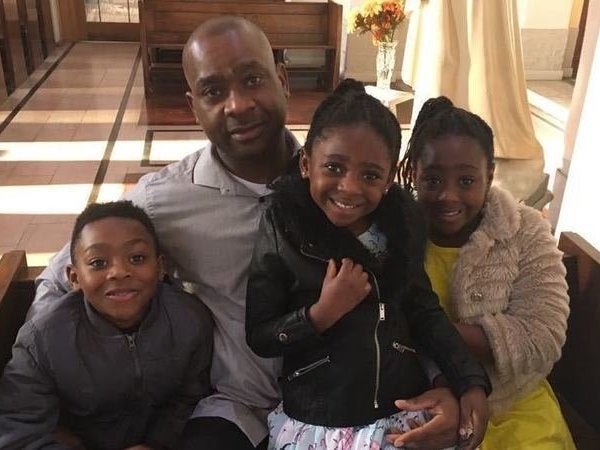'Now they are scared every time I go out': Man reveals trauma of being separated from children by Home Office
‘My children are always scared the government is taking me away from them again. They’re afraid every time I leave the house. We can’t be living like this,’ says father-of-three Kenneth Oranyendu

Your support helps us to tell the story
From reproductive rights to climate change to Big Tech, The Independent is on the ground when the story is developing. Whether it's investigating the financials of Elon Musk's pro-Trump PAC or producing our latest documentary, 'The A Word', which shines a light on the American women fighting for reproductive rights, we know how important it is to parse out the facts from the messaging.
At such a critical moment in US history, we need reporters on the ground. Your donation allows us to keep sending journalists to speak to both sides of the story.
The Independent is trusted by Americans across the entire political spectrum. And unlike many other quality news outlets, we choose not to lock Americans out of our reporting and analysis with paywalls. We believe quality journalism should be available to everyone, paid for by those who can afford it.
Your support makes all the difference.Kenneth Oranyendu was detained on the morning of 9 March during a routine sign-on with the Home Office. He had dropped his three young children at school hours before. Their mum was in Nigeria for her father’s funeral, so there was no one else to pick them up. Nobody seemed to care.
“I told the officers my wife wasn’t in the country,” Mr Oranyendu tells The Independent. “But they kept me there and said they would deal with it. They kept me there until 10pm, and then took me to a detention centre.
“I felt lost. I was thinking about the safety of the children. I couldn’t communicate with them. I didn’t know where they were.”
The 46-year-old, who has been in Britain since he was a teenager and has previously served a jail sentence for drug trafficking, was held for 12 hours before being driven to Colnbrook removal centre. It was another three days before he was able to communicate with his children.
“The day I did speak to them we were all crying on the phone. They were in care,” he recalls. “It was frightening for them. No one could explain what was going on.”
The Home Office refused to release Mr Oranyendu, and his wife was forced to return home early. He was granted bail six weeks later.
“Now the children are scared every time I go out – even if I just go to the shops. It’s too much,” he says. “They’re always scared the government is taking me away from them again. Whenever I’m not there, they are afraid I am abandoning them. We can’t be living like this.”
Mr Oranyendu’s wife, Eucharia Jakba, says the separation and being taken into care had a detrimental impact on the children, who she says now suffer from anxiety and panic attacks.
“They started bedwetting after that. Now they are always scared that we won’t be there,” she says. ”Even when we go to the shop and I go to get something, they start shouting. If they come back from school and don’t see their dad at home, they tell me to call him.”
Speaking of her husband’s drug trafficking conviction, Ms Jakba said: “He did something wrong and he did his time, but to separate him from his children… It’s punishing them for something they did not commit.”
Join our commenting forum
Join thought-provoking conversations, follow other Independent readers and see their replies
Comments